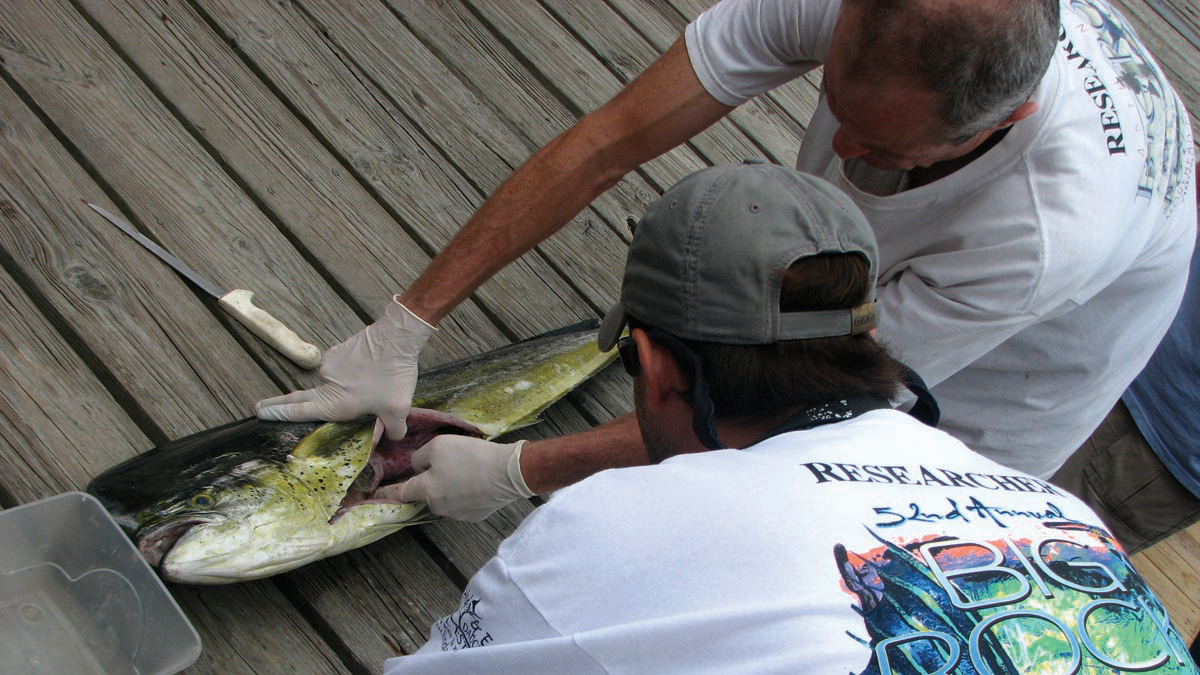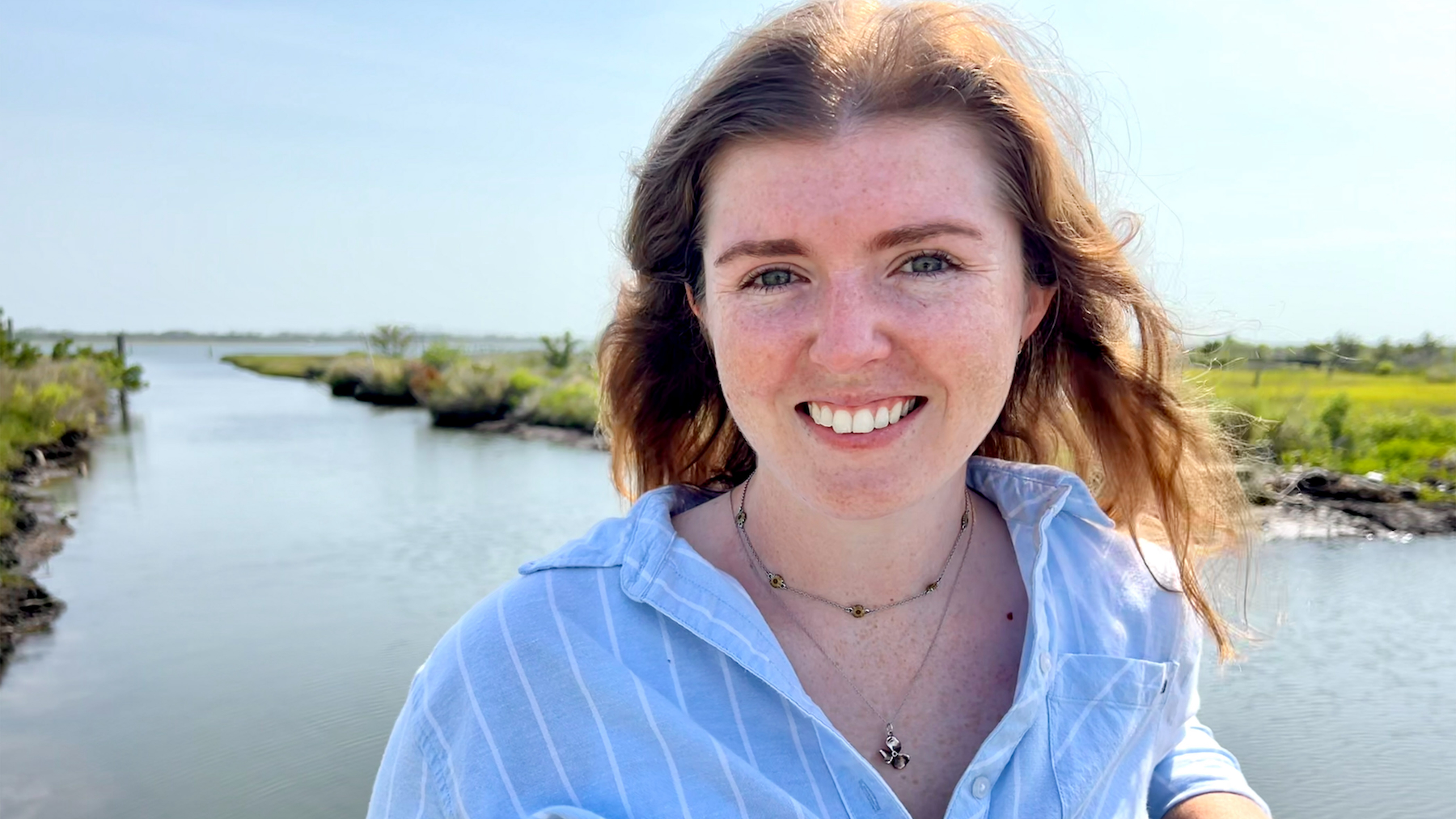CMAST’s Role in the Big Rock Blue Marlin Tournament

If you’re from Eastern North Carolina, you probably know that The Annual Big Rock Blue Marlin Tournament is a large sport fishing event in which anglers compete to land blue marlin, dolphinfish, yellowfin tuna, and wahoo. However, have you ever wondered what happens to the fish these anglers catch? After the fish are weighed in at the Morehead City waterfront, the NC State University Center for Marine Sciences and Technology (CMAST) steps in.
Ryan Tharp, an NC State University graduate student at CMAST, is the director of Blue Marlin Sampling for the tournament. He says, “We at CMAST take samples from each fish that is brought back to the dock. There are two teams that conduct the sampling.
“Our team is split into two groups: the dockside sampling team and the marlin team. The dockside team, typically led by Paul Rudershausen and Jeffrey Merrell, both of CMAST, take length and weight measurements, tissue samples, and stomach contents of dolphinfish, yellowfin tuna, and wahoo while still at the dock.”
The marlin team, led by Tharp, takes the marlins back to CMAST, where Tharp says, “We take a variety of samples like stomach contents, skin tissue, liver tissue, muscle tissue, gonad tissue, and eye lenses. We use this [information] in long-term studies in our own lab and also send samples to other researchers across the country.”
“The long-term data set on these pelagic species is unique and invaluable in gaining a better understanding of many aspects of their biology, including foraging ecology and mercury levels.” said Jeffrey Buckel, a professor at CMAST.
This collaboration is yet another example of how CMAST works with other organizations to find local and global coastal solutions through research. The Big Rock Blue Marlin Tournament recognizes the value in NC State University’s research and includes CMAST in their charitable giving.


